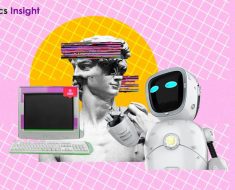Artificial Intelligence (AI) has become a hotbed of innovation and controversy in recent years. At the forefront of this revolution is OpenAI, led by its dynamic CEO, Sam Altman. The company has made substantial strides in developing a new form of intelligence that is both ambitious and innovative. However, this quest also raises concerns about the associated implications and risks.
Generative AI: A Double-Edged Sword
OpenAI’s key achievement is the development of Generative AI, which has seen rapid growth and investment from big tech companies. The company’s chatbot, ChatGPT, achieved unprecedented success. However, this innovation was not without criticism, as it faced backlash for delivering incorrect information. The generative AI industry has received billions in investments, but concerns have been raised about AI that could surpass human intelligence. This fear is especially prevalent in the context of elections, where AI-generated misinformation is a growing concern.
Regulations and Future of AI
Regulators are working on establishing guardrails for AI. In response to the profound risks posed by AI, a group of over 1,000 signatories called for a pause in its development. This call to action coincided with governments and regulatory authorities rolling out new laws to keep the development and use of AI in check. In December 2023, EU policymakers agreed on sweeping legislation requiring developers to disclose their AI training data and comply with laws. Similar legislative efforts are underway in the US and the UK.
OpenAI: A Controversial Pioneer
The journey of OpenAI under the leadership of Sam Altman has been a rollercoaster ride. Altman was abruptly fired and then reinstated, sparking a debate over the future of AI development and its societal impact. Despite the drama, Altman’s influence has led to OpenAI becoming a significant player in the generative AI industry. Even tech giants like Google and Amazon have struggled to keep pace with OpenAI’s success. Microsoft, in particular, has benefitted from its partnership with OpenAI, receiving a significant portion of the company’s profits.
The Human Side of AI Innovation
While the technological aspects of AI are often the focus, the human side should not be ignored. Altman’s daily routine, including a 15-hour fast, low-dose sleeping pills, and a focus on maximizing his effectiveness, reflects the dedication required to lead an AI company. His commitment to leaving space in his schedule for chance encounters and exposure to new ideas provides insight into the innovative mindset driving OpenAI’s success.
The Balance of Profit and Safety
The AI industry is grappling with finding a balance between profit and safety concerns. The use of AI has led to class action lawsuits and fears about job displacement. Predictions suggest that generative AI could replace up to 300 million jobs through automation. As AI continues to grow and develop, it is crucial to ensure that the benefits do not come at the expense of the safety and well-being of individuals and society.
As we navigate this AI revolution, it’s clear that we are in the midst of a transformative era. The story of Sam Altman and OpenAI serves as a testament to both the immense potential and the profound risks of AI. Navigating this challenging landscape requires a delicate balance of innovation, regulation, and ethical considerations.




